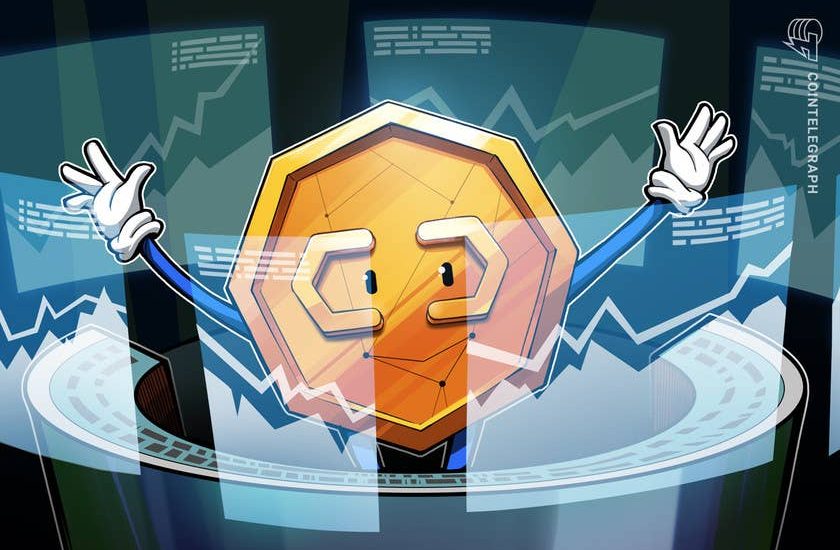- September 22, 2021
- Posted by: admin
- Category: BitCoin, Blockchain, Cryptocurrency, Investments


The sharp bounce back in the Avalanche market still faces risks of exhaustion as the price forms a bearish wedge setup.
Avalanche (AVAX) prices recovered on Sept. 22, paring a portion of losses that hit cryptocurrencies at the beginning of this week, led by worries about potential contagion in China’s housing market.
The AVAX/USD exchange rate surged by as much as 12.05% to log an intraday high at $66.08. The pair’s gains came as a part of an interim rebound that started Tuesday after it bottomed out at a local low of $50.68. As a result, AVAX’s net rebound stretched by up to 30.37%.
Cointelegraph’s VORTECS™ Score also flipped bullish ahead of the Avalanche token rally.

The VORTECS™ Score is an algorithmic indicator comparing historical market and social conditions around each coin to those currently observed. Exclusively available to subscribers of Cointelegraph Markets Pro, each asset’s VORTECS™ Score indicates whether the present combination of the coin’s market and social metrics is historically bullish, bearish or neutral.
As shown in the chart above, the asset’s VORTECS™ line turned green (corresponding to values above 66) on Sept. 22 against a price of $61.22. Later, AVAX logged sizable gains.
Avalanche raises $250 million
On Monday, the Avalanche token’s price had fallen by 18.18% to $57.34. Its losses imitated concerns across the global market as investors weighed the downside risks coming from the Evergrande debt crisis. As a result, all the major cryptocurrencies, including Bitcoin (BTC) and Ether (ETH), fell in sync with global stock bourses.

The bearish shock in the Avalanche market came despite its healthy fundamentals. In detail, AVAX/USD had surged to a new record high at $77.37 on Binance on Sunday, days after raising $230 million in an AVAX sales round led by Polychain and Three Arrows Capital.
Avalanche’s funding came against the backdrop of top rival Ethereum’s ongoing network issues, including bandwidth congestion and higher transaction fees. The young blockchain project, which claims to process over 10,000 transactions per second (TPS) compared to Ethereum’s 13 TPS, already has more than 270 projects building atop its public ledger, including Tether, SushiSwap, Chainlink, Circle and The Graph.
“AVAX aims at a new price discovery above $100 in the medium to long term,” said Gustavo De La Torre, Business Development Director at N.exchange, in a statement to Cointelegraph.
“The growth potential can be supported by the fundamental utility, which presents it as a major competitor to the Ethereum blockchain as a smart contract hub.”
Bearish technicals
Despite its recovery, the AVAX/USD rate rally may reach a point of exhaustion as it forms a textbook bearish pattern.
Dubbed as a rising wedge, the structure appears when the price consolidates between upward sloping support and resistance trendlines looking to converge at a later point. Rising wedges are usually bearish reversal patterns, with price targets located at a length equal to the structure’s maximum height.
Related: DeFi platform Vee Finance exploited for $35M on Avalanche blockchain
Avalanche prices appear to have been fluctuating inside a rising wedge pattern. As a result, the maximum net distance between the structure’s upper and lower trendline comes to be $19.51.

Depending on the breakout point, the AVAX/USD wedge target could be $19.51. The chart above assumes two breakout levels based on their historical significance as support and resistance. As a result, Avalanche risks falling anywhere between $42.30 and $58.69 in the coming sessions.
The views and opinions expressed here are solely those of the author and do not necessarily reflect the views of Cointelegraph.com. Every investment and trading move involves risk, you should conduct your own research when making a decision.
